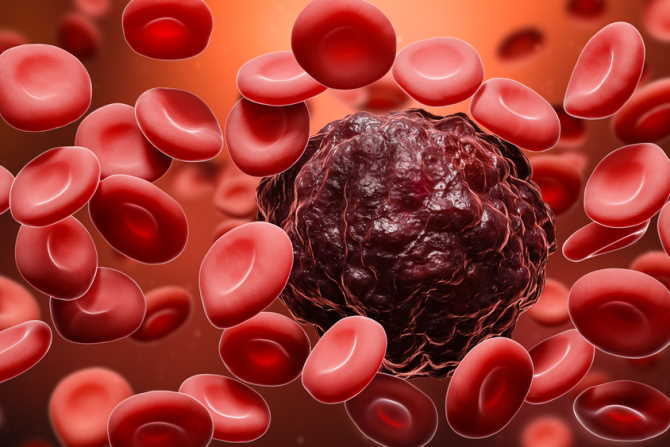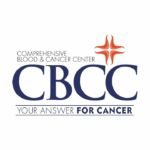
BLOOD CANCER- Causes, Symptoms & Treatment options
Leukemia, lymphoma, and multiple myeloma are examples of blood cancer, commonly referred to as hematological malignancy. Blood cancer starts in immune system cells like lymph nodes or blood-forming tissues like the bone marrow. The creation or regular operation of normal blood cells, such as their ability to fend off illnesses or control bleeding, are affected by abnormal blood cells.
Blood cancer causes non-specific, widespread symptoms that are linked to blood cell loss or dysfunction. Generalized weakness, high-grade fever, night sweats, vomiting, breathing problems, weight loss, recurring infections, back pain, stomach discomfort, GI distress, recurrent fractures, unusual bleeding, or skin rashes are among the symptoms. Unusual glandular swellings in the neck, axilla, or inguinal areas are among the other signs. Patients may get repeated infections that necessitate hospitalization.
Although there are many different forms of blood cancers known, each one requires a different approach to therapy. Myeloma, lymphoma, and leukemia are the three primary forms.
Leukaemia: Leukaemia is a disease that develops when aberrant white blood cells called blasts produce abnormally swiftly and uncontrollably (growing slowly). Neutrophils and lymphocytes are examples of white blood cells that typically combat infection. Because there are so many aberrant white blood cells, they are unable to combat infections and their production and functioning are disrupted.
Lymphoma: Lymphoma is a type of blood cancer that affects lymphocytes or the body’s lymphatic system, which includes the lymph nodes. White blood cells called lymphocytes help the body fight illnesses. The immune system is then put at risk by these lymphoma cells. The majority of cases of blood cancer in adults are lymphomas, which account for more than half of all cases. Lymphoma comes in two different varieties:
Non-Hodgkin lymphoma begins with an abnormal white blood cell proliferation and can result in malignant tumours anywhere in the body. It can be a T or a B cell. They can manifest with atypical symptoms and are more frequent than Hodgkin’s lymphoma.
Hodgkin’s lymphoma is recognised by the presence of an abnormally large lymphocyte known as the Reed-Sternberg cell. It originates in immune cells termed B lymphocytes, or B cells. Usually, they do so in an infectious way.
The growth of abnormal plasma cells is what causes myeloma. White blood cells called plasma cells create antibodies, which aid in the defence against infections. Blood tests can identify the abnormal protein called M band, which is produced by myeloma cells. Through kidney damage, including renal failure and elevated calcium levels, this aberrant protein can harm the kidneys.
DIAGNOSIS
- Physical Examination
- CBC with peripheral smear, liver, and kidney function tests are among the blood tests.
- Investigation of the bone marrow using cytogenetics and flow cytometry
- Diagnostic imaging exams, including MRI, PET scan, and CT scan
- Surgical excision of lymph nodes (for examination)
- PCR and NGS testing for molecular analysis
- Further specialized tests
The eradication of cancer is the main goal of treatment for blood cancer. The type of blood cancer, age, the rate at which the disease is growing, and the body sections affected all determine how the disease is treated.
The management of blood cancer varies on its form and nature. Among these include chemotherapy, immunotherapies, radiation therapy, palliative care, enrollment in clinical trials, and bone marrow transplant.
At CBCC Cancer Center, Agartala, patients have the benefit of state-of-the-art infrastructure, a highly specialised team of top haemato-oncologists, and a dedicated and compassionate multi-disciplinary team of specialists with expertise in treating all kinds of blood disorders and bone marrow transplants. The Department of Haemato-Oncology and Bone Marrow Transplant at CBCC Cancer Center, Agartala is dedicated to enhancing patient outcomes by employing strategies founded on a solid understanding of the biology of the illness. In order to make sure that the care plan provides the best results for our patients, we have vast experience in both conventional and cutting-edge therapies. To meet the unique requirements of everyone, we also collaborate closely with our peers in other fields, such as nutrition, social work, psychiatry, geriatrics, and others.
Comprehensive Blood and Cancer Center (CBCC) is a USA based cancer care network with its centers in the USA and India. The ultimate aim of CBCC is to provide quality cancer care with advanced technology and growing innovation. CBCC Cancer Center, Agartala belongs to the same prestigious institution and is one the most reputable medical Institution in Eastern India. It is reputed for providing accessible and affordable healthcare services to patients. A highly qualified and caring team of doctors provide exceptional cancer care through interdisciplinary treatment.
In case of expert consultation, visit your nearest CBCC center.


